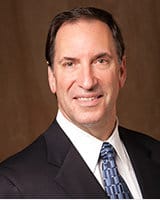Articles of Interest
Featured Article
The first meeting creates a powerful first impression for both of you, so it’s important to nail this one. We need to manage this meeting so that everyone wins an Oscar. The play is written, directed and produced by the buyer. It’s their script, agenda, and production. While that may seem like a slight to the seller, it’s actually a relief when you figure out that it’s just yours to lose, and that all the pressure is actually on the buyer.
August 2020
Featured Article
It’s always a good idea to seek expert guidance in reviewing critical options before finding out the hard way that price is not always what it’s cracked up to be. Remember that sellers walk away with the bottom line, not the top one.
August 2020
Featured Article
The time is coming. You’ve spent at least eight years and an average of $400,000 dollars to get to this point. And this point is just the starting line. Eight years of lost income and a school debt of $400,000 is a lot of money to recoup, and you’re just at ground zero on this journey. You’re going to need to closely examine your options going forward if you’re going to pay off that investment and to make a necessary profit from it. Here’s some considerations that might help you with your analysis.
July 2020
Featured Article
If you’re a dental student or new graduate, you’ re going to be faced with a multi-million dollar decision soon. Would a difference of over $12 million dollars in a thirty year career make a difference to you? If so, keep on reading.
July 2020
Our team has helped many new graduates with student debt to borrow the money it takes to buy a practice. Many times it involves a Small Business Administration guaranteed loan, but there are lenders who are willing and able to lend money for a practice purchase, notwithstanding educational debt.
December 2018
Dentists selling their practices may face some options. One option is a sale to a conventional purchaser, typically a dentist who is basically searching for a job. These sales take place at conventional price / gross metrics circling around 61%, the average ratio for 2,469 practice sales tracked in an informal survey.
January 2018
During my career helping dentists acquire practices, financing has always been a challenge for them. I point out to lenders that while new dentist borrowers might have little financial net worth, they do have an incredible valuable asset - a dental degree. It's not usual to see dentists invest $400,000 or more in order to obtain their degrees. But a lender cannot collateralize that asset.
Published in Dental Economics
August 2016
Several years ago I was contacted by a dentist who was desperate to sell his practice. Although he already had a nonexclusive listing with another broker, he also agreed to list his practice with me in an exclusive listing, which meant that I would receive a commission even if the other broker sold the practice. (I told you he was desperate.)
Published in Dental Economics
June 2016
Last year in New Orleans, I was having breakfast with a lender for practice acquisitions and asked him in passing why large corporations buy and set up dental practices. He pointed out that while they could park their money in a cash account and earn 1-percent interest, they discovered that they could get a 20 percent or better rate of return on their investment from ownership of dental practices. I found that hard to believe, if not totally absurd! How in the world could anyone expect to make a 20-percent investment return in today’s market? Even Bernie Madoff didn’t offer that kind of return.
Published in Dental Entrepreneur
November 2015
In working with dentists in the sales of their practices, I’ve encountered sellers who have enhanced their sale process and those who have undermined their sale process. A seller’s most successful approach in their practice sale is to enlist a reputable practice broker. Brokers will protect your confidentiality from curiosity seekers and present your practice in its best, but honest, light. Brokers know where to obtain financing, how to structure sales for maximum tax savings, how and where to market for maximum exposure, and how to minimize the risks of post-sale lawsuits.
Published in Dental Economics
June 2013
If you're in the market to buy a practice, my best advice is to have a professionally prepared cash flow analysis for the practices you're considering.
Published in Dental Economics
May 2012
As we baby boomers work our way toward retirement, we need to consider how to best accomplish this final stage of our careers. Most of us have made some mistakes along the way, but we were able to repair most, if any, damage. However, in this last career step, we need to nail it the first time.
Published in Dental Economics
January 2011
I saw an advertisement in a state journal for the sale of a practice. The ad contained the capital letters "NO BROKERS", which was to me an irresistible invitation to reply.
Published in Practice Transitions
April 2010
I am often asked 'How do you appraise a dental practice' and 'What percent do you use to get the price?'. If the process were that simple, we wouldn't need experts in practice appraisals, just a calculator that can multiply two numbers.
Published in Dental Economics
April 2009
I remember sitting in class in dental school back when the earth was cooling, thinking, "If I ever get out of here, I'm never coming back." Well, eventually I did get out of there and realized afterwards the incredible knowledge and skills I had somehow acquired. I also realized how ill-prepared I was to face the many financial decisions that were not based on my extensive knowledge of enamel rods or biochemistry.
Published in Dental Entrepreneur
April 2009
Locum tenens has been around dentistry for many years, although not always known by its formal Latin name. Locum tenens literally means "hold the place down" and that is what we are doing when a dentist fills in for another dentist who is on vacation, disabled, given "time out" by the dental board, or who has died. Our physician brethren have used this concept for many years, as their practice needs are more acute than in dentistry and keeping a practice open is more critical.
Published in Doctor of Dentistry
December 2008
Recently I structured an Equity Development Plan, our safer alternative to partnerships, for a practice owner and an associate dentist. I assumed that they were happy and doing well until I received a call from the owner that the associate was making too much money and that the owner was losing money. Apparently, while still less than six months into the relationship, the associate was producing $50,000 per month and increasing.
December 2008
The emergence of women in dentistry has been a slow but steady phenomenon that has challenged many of us to examine our preconceptions and stereotypes of how women practice. Besides the many effects women are having on the clinical side of the profession, women are also impacting the management and transitioning of dental practices.
Published in Dental Economics
January 2008
As I consider the topic of the value of a dental practice appraisal, I think of all of the instances in my twenty four year's experience of why people have had their practices appraised and what good it has actually done for them.
Published in Doctor of Dentistry
December 2006
I don't know how many times I have heard a dentist tell me how he plans on cutting back and slowing down and he gets closer to retirement. On one occasion in which I had listed a practice for sale, the seller told me of his plans to cut his schedule back by one day per week to work on his golf game. I had never thoroughly analyzed the effect of a cutback before but decided to take a very close look at what the exact effects of such a cut back would be.
Published in Dental Economics
October 2006
The best business dealings are when you deal with someone whose word and handshake are all you need ... and then you put it in writing!
Published in Dental Economics
March 2006
Appraisals are obviously needed for purposes of establishing practice value at the time of a sale. However, there are many other benefits to be gained by commissioning an appraisal in advance of a sale. Read what one dentist says about the many ways an appraisal benefitted him and his practice, even when he was not considering a sale.
May 2005
My former article discussed the pitfalls of partnerships and buy-ins which include loss of control, loss of marketability, and loss of value. These are consequences of converting a real tangible practice into intangible undivided interests.
Published in Dental Economics
January 2005
One of the most popular practice transition strategies is the buy-in. The interests may be any size - 10%, 49%, 50 % or more. Sometimes it involves selling progressive interests and other times it involves selling a remaining interest by a retiring shareholder.
Published in Dental Economics
January 2004
In the past year, our firm encountered three dentists who experienced the same event - death.
Published in Dental Economics
September 2003
The importance of value to the buyer of a dental practice is emphasized, since value is the buyer's actual take-home income. This article explains how to recognize and measure value in practices.
Published in Dental Economics
March 1999
All to frequently buyers zero in on price as the primary practice purchase issue, while ignoring the issue of value. However, buyers stand to benefit much more by receiving high value than by paying a low price, since the primary practice value actually is the net income the buyer takes home from the purchased practice.
Published in Dental Economics
November 1998
Testimonial from a Satistfied Dentist
"I have just had my best vacation ever; it was great not to have to worry about problems or expenses in the dental office. For about five years I have been in the process of disposing of my dental practice and with no results. This is why I am so impressed with the very fair contract you made for me with a very fine, well qualified young dentist. In just a few months after I contact you, you accomplished what I had begun to think was impossible."
William B. Moore, Jr., DDS
Articles of Interest
Featured Article
The first meeting creates a powerful first impression for both of you, so it’s important to nail this one. We need to manage this meeting so that everyone wins an Oscar. The play is written, directed and produced by the buyer. It’s their script, agenda, and production. While that may seem like a slight to the seller, it’s actually a relief when you figure out that it’s just yours to lose, and that all the pressure is actually on the buyer.
August 2020
Featured Article
It’s always a good idea to seek expert guidance in reviewing critical options before finding out the hard way that price is not always what it’s cracked up to be. Remember that sellers walk away with the bottom line, not the top one.
August 2020
Featured Article
The time is coming. You’ve spent at least eight years and an average of $400,000 dollars to get to this point. And this point is just the starting line. Eight years of lost income and a school debt of $400,000 is a lot of money to recoup, and you’re just at ground zero on this journey. You’re going to need to closely examine your options going forward if you’re going to pay off that investment and to make a necessary profit from it. Here’s some considerations that might help you with your analysis.
July 2020
Featured Article
If you’re a dental student or new graduate, you’ re going to be faced with a multi-million dollar decision soon. Would a difference of over $12 million dollars in a thirty year career make a difference to you? If so, keep on reading.
July 2020
Our team has helped many new graduates with student debt to borrow the money it takes to buy a practice. Many times it involves a Small Business Administration guaranteed loan, but there are lenders who are willing and able to lend money for a practice purchase, notwithstanding educational debt.
December 2018
Dentists selling their practices may face some options. One option is a sale to a conventional purchaser, typically a dentist who is basically searching for a job. These sales take place at conventional price / gross metrics circling around 61%, the average ratio for 2,469 practice sales tracked in an informal survey.
January 2018
During my career helping dentists acquire practices, financing has always been a challenge for them. I point out to lenders that while new dentist borrowers might have little financial net worth, they do have an incredible valuable asset - a dental degree. It's not usual to see dentists invest $400,000 or more in order to obtain their degrees. But a lender cannot collateralize that asset.
Published in Dental Economics
August 2016
Several years ago I was contacted by a dentist who was desperate to sell his practice. Although he already had a nonexclusive listing with another broker, he also agreed to list his practice with me in an exclusive listing, which meant that I would receive a commission even if the other broker sold the practice. (I told you he was desperate.)
Published in Dental Economics
June 2016
Last year in New Orleans, I was having breakfast with a lender for practice acquisitions and asked him in passing why large corporations buy and set up dental practices. He pointed out that while they could park their money in a cash account and earn 1-percent interest, they discovered that they could get a 20 percent or better rate of return on their investment from ownership of dental practices. I found that hard to believe, if not totally absurd! How in the world could anyone expect to make a 20-percent investment return in today’s market? Even Bernie Madoff didn’t offer that kind of return.
Published in Dental Entrepreneur
November 2015
In working with dentists in the sales of their practices, I’ve encountered sellers who have enhanced their sale process and those who have undermined their sale process. A seller’s most successful approach in their practice sale is to enlist a reputable practice broker. Brokers will protect your confidentiality from curiosity seekers and present your practice in its best, but honest, light. Brokers know where to obtain financing, how to structure sales for maximum tax savings, how and where to market for maximum exposure, and how to minimize the risks of post-sale lawsuits.
Published in Dental Economics
June 2013
If you're in the market to buy a practice, my best advice is to have a professionally prepared cash flow analysis for the practices you're considering.
Published in Dental Economics
May 2012
As we baby boomers work our way toward retirement, we need to consider how to best accomplish this final stage of our careers. Most of us have made some mistakes along the way, but we were able to repair most, if any, damage. However, in this last career step, we need to nail it the first time.
Published in Dental Economics
January 2011
I saw an advertisement in a state journal for the sale of a practice. The ad contained the capital letters "NO BROKERS", which was to me an irresistible invitation to reply.
Published in Practice Transitions
April 2010
I am often asked 'How do you appraise a dental practice' and 'What percent do you use to get the price?'. If the process were that simple, we wouldn't need experts in practice appraisals, just a calculator that can multiply two numbers.
Published in Dental Economics
April 2009
I remember sitting in class in dental school back when the earth was cooling, thinking, "If I ever get out of here, I'm never coming back." Well, eventually I did get out of there and realized afterwards the incredible knowledge and skills I had somehow acquired. I also realized how ill-prepared I was to face the many financial decisions that were not based on my extensive knowledge of enamel rods or biochemistry.
Published in Dental Entrepreneur
April 2009
Locum tenens has been around dentistry for many years, although not always known by its formal Latin name. Locum tenens literally means "hold the place down" and that is what we are doing when a dentist fills in for another dentist who is on vacation, disabled, given "time out" by the dental board, or who has died. Our physician brethren have used this concept for many years, as their practice needs are more acute than in dentistry and keeping a practice open is more critical.
Published in Doctor of Dentistry
December 2008
Recently I structured an Equity Development Plan, our safer alternative to partnerships, for a practice owner and an associate dentist. I assumed that they were happy and doing well until I received a call from the owner that the associate was making too much money and that the owner was losing money. Apparently, while still less than six months into the relationship, the associate was producing $50,000 per month and increasing.
December 2008
The emergence of women in dentistry has been a slow but steady phenomenon that has challenged many of us to examine our preconceptions and stereotypes of how women practice. Besides the many effects women are having on the clinical side of the profession, women are also impacting the management and transitioning of dental practices.
Published in Dental Economics
January 2008
As I consider the topic of the value of a dental practice appraisal, I think of all of the instances in my twenty four year's experience of why people have had their practices appraised and what good it has actually done for them.
Published in Doctor of Dentistry
December 2006
I don't know how many times I have heard a dentist tell me how he plans on cutting back and slowing down and he gets closer to retirement. On one occasion in which I had listed a practice for sale, the seller told me of his plans to cut his schedule back by one day per week to work on his golf game. I had never thoroughly analyzed the effect of a cutback before but decided to take a very close look at what the exact effects of such a cut back would be.
Published in Dental Economics
October 2006
The best business dealings are when you deal with someone whose word and handshake are all you need ... and then you put it in writing!
Published in Dental Economics
March 2006
Appraisals are obviously needed for purposes of establishing practice value at the time of a sale. However, there are many other benefits to be gained by commissioning an appraisal in advance of a sale. Read what one dentist says about the many ways an appraisal benefitted him and his practice, even when he was not considering a sale.
May 2005
My former article discussed the pitfalls of partnerships and buy-ins which include loss of control, loss of marketability, and loss of value. These are consequences of converting a real tangible practice into intangible undivided interests.
Published in Dental Economics
January 2005
One of the most popular practice transition strategies is the buy-in. The interests may be any size - 10%, 49%, 50 % or more. Sometimes it involves selling progressive interests and other times it involves selling a remaining interest by a retiring shareholder.
Published in Dental Economics
January 2004
In the past year, our firm encountered three dentists who experienced the same event - death.
Published in Dental Economics
September 2003
The importance of value to the buyer of a dental practice is emphasized, since value is the buyer's actual take-home income. This article explains how to recognize and measure value in practices.
Published in Dental Economics
March 1999
All to frequently buyers zero in on price as the primary practice purchase issue, while ignoring the issue of value. However, buyers stand to benefit much more by receiving high value than by paying a low price, since the primary practice value actually is the net income the buyer takes home from the purchased practice.
Published in Dental Economics
November 1998
ADS South
Testimonial from a Satistfied Dentist
"I have just had my best vacation ever; it was great not to have to worry about problems or expenses in the dental office. For about five years I have been in the process of disposing of my dental practice and with no results. This is why I am so impressed with the very fair contract you made for me with a very fine, well qualified young dentist. In just a few months after I contact you, you accomplished what I had begun to think was impossible."
William B. Moore, Jr., DDS

 Add me to your address book
Add me to your address book



